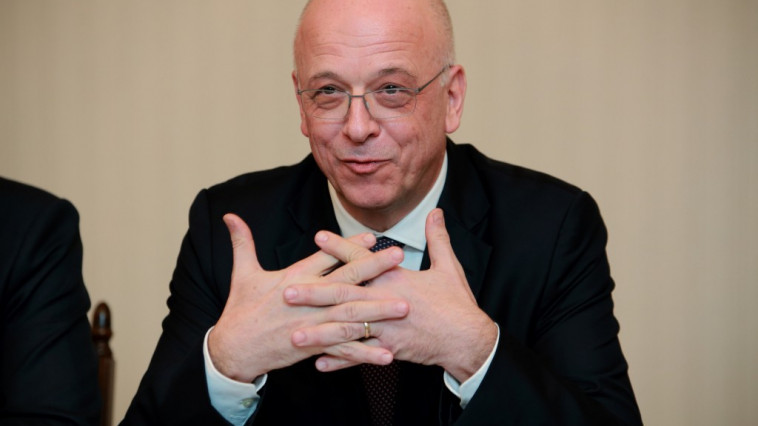Diplomacy // What Cord Meier-Klodt did to bring closer Chisinau and Tiraspol

Cord Meier-Klodt, the new German ambassador to Bucharest is the diplomat who argued the identification of a special status concept for Transnistria. At the same time, namely under his leadership, OSCE has carried out unprecedented pressure on Chisinau to sign the "Berlin Protocol".
At the beginning of 2016, Cord Meier-Klodt, the Special Representative for the Transnistrian Settlement Process further reiterated the commitment of the OSCE German Chairmanship to reinvigorating dialogue between the sides in order to strengthen mutual confidence and improve the lives of people on both banks of the Dniester River.
During the German Chairmanship, the political talks in the 5+2 format were reinvigorated. Both Chisinau and Tiraspol welcomed this.
In the summer of 2016 in Berlin was signed a protocol that provides for certain concessions from Chisinau to Transnistria: recognition of license plates, diplomas and termination of criminal cases against the so-called authorities in Tiraspol.
In Chisinau vision, these small steps is not a criterion for creating the concept of a special status. The special status will stand on a much broader framework than the policy of small steps. This framework will be developed in accordance with the Constitution, current legislation and will be discussed with civil society and with the parliamentary and extra-parliamentary parties.
Ukrainian experts considered then that such a concept could serve as a ceiling for a possible special status given to Donbas.
Meier-Klodt: civil society to engage in the conflict settlement
Ambassador Cord Meier-Klodt, spoke on several occasions in Chisinau about the need to implement a special status for Transnistria.
In an event dedicated to the Transnistrian conflict and European Integration of Moldova, Ambassador Meier-Klodt said that the European integration would not play a dominant role in the elections on both banks. The ambassador spoke about elections in Transnistria as legal and constitutional elections. In fact, Meier-Klodt virtually put equals sign between the two presidential elections. "The election period is not the best time for a calm dialogue and moderation," Meier-Klodt said.
Meier-Klodt believes the perpetuation of peace on the both sides will strengthen Moldova's position in Europe and facilitate the path towards European integration. The diplomat is convinced that a history of success is possible in Moldova by providing further functional autonomy for Gagauzia, but also by ensuring minority rights.
For Germany, as chairman of OSCE, the main objective was to reinvigorate the talks in the 5 + 2 format. However, the resumption of formal meetings didn't make sense. All international partners - OSCE, Russia and Ukraine, USA and EU - agreed with such an approach. This unanimous approach was generally materialized in early June by the assumption of Berlin Protocol, which contains an agenda and steps that will be implemented. Berlin Protocol was assumed as a framework for future settlement of the Transnistrian conflict and the identification of a concept of special status within Moldova.
Referring to the statement on the Transnistrian settlement Red Lines drawn by civil society, Meier-Klodt said that he accepts some points of the statement, while the other he considers absolutely inappropriate and insignificant. For Meier-Klodt is important that the Moldovan society to endeavor so the Transnistrian issue would reach the top political priorities of the Moldovan elite. Moldova is to propose a concept of special status for Transnistria that will serve as a basis for following the Berlin Protocol.














